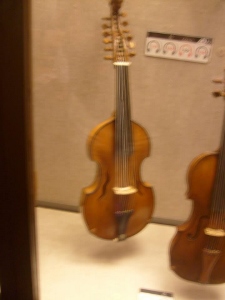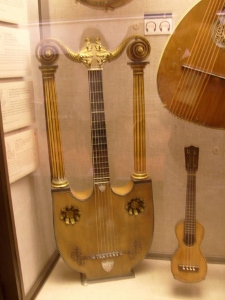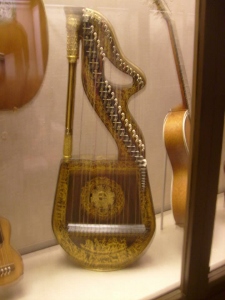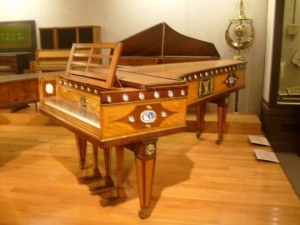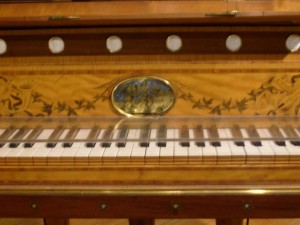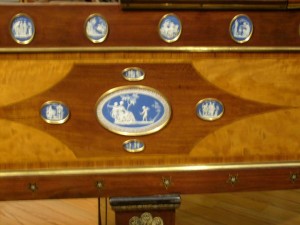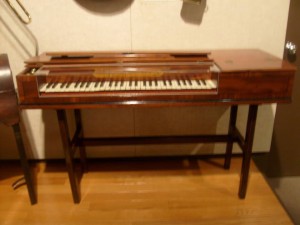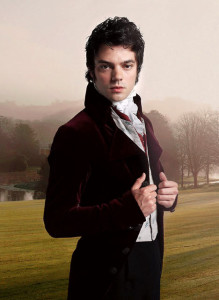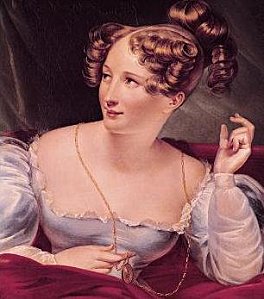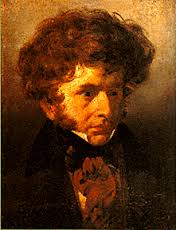T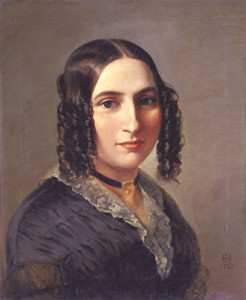 oday it’s the birthday of composer Fanny Mendelssohn, born November 14 1805. She’s only recently been recognized as the genius she was and as a composer who may have been more talented than her famous younger brother Felix.
oday it’s the birthday of composer Fanny Mendelssohn, born November 14 1805. She’s only recently been recognized as the genius she was and as a composer who may have been more talented than her famous younger brother Felix.
She came from an intellectual wealthy Jewish family, the eldest of four children. Her banker father Abraham (1776-1835), son of the Jewish philosopher Moses Mendelssohn, shared a passionate love of music with his wife Lea, a gifted amateur pianist and singer. At Fanny’s birth, Abraham proudly reported “Lea says that the child has Bach-fugue fingers.” Sure enough, when Fanny was 13 she played from memory 24 preludes from Bach’s Well Tempered Clavier as a birthday present for her father.
Fanny and Felix were very close, musical collaborators and critics. Yet while Felix received his family’s wholehearted support, Fanny received advice such as this:
Music will perhaps become his profession, whilst for you it can and must only be an ornament, never the root of your being and doing
Yet the Mendelssohn family strongly believed that Fanny should receive a good education and encouraged her musical activities within the family. In 1812, the Mendelssohns moved to the less tolerant city of Berlin. In 1816 the children were baptized and Abraham and Leo converted to Christianity in 1822. Abraham changed the family name to Mendelssohn-Bartholdy, but it never really stuck. The family became the center of the city’s intellectual life, with writers such as Grimm, Hoffman, and Heine, and composers such as von Weber and Spohr frequent guests. In 1822 they started presenting musicales, starring the Mendelssohn children–Felix and Fanny on piano, Rebecca singing, and Paul on the cello–to which prominent musicians were invited. It was around this time that Fanny met the poet Goethe and set several of his poems to music.
 Abraham, and also sadly Felix, were both strongly opposed to Fanny publishing her compositions, mostly lieder, although Felix compromised by publishing six of her works under his own name. Ironically they became some of “his” most popular compositions. In 1829, Fanny married Wilhelm Hensel, a court painter in Berlin (she composed both the organ processional and recessional for the wedding), and had a son Sebastian the following year. Her musical activities declined, with Felix criticizing the larger scale compositions she attempted, possibly because he thought such works were improper for a woman. She devoted herself once more to the musicales, but they discontinued at Abraham’s death in 1835. She was not as close now to Felix, who was busy in Leipzig as a successful composer and conductor. She defied her brother by publishing her song Die Schiffende under her own name, and although he allowed he was wrong when she received critical success, it wasn’t until 1846 that she published again.
Abraham, and also sadly Felix, were both strongly opposed to Fanny publishing her compositions, mostly lieder, although Felix compromised by publishing six of her works under his own name. Ironically they became some of “his” most popular compositions. In 1829, Fanny married Wilhelm Hensel, a court painter in Berlin (she composed both the organ processional and recessional for the wedding), and had a son Sebastian the following year. Her musical activities declined, with Felix criticizing the larger scale compositions she attempted, possibly because he thought such works were improper for a woman. She devoted herself once more to the musicales, but they discontinued at Abraham’s death in 1835. She was not as close now to Felix, who was busy in Leipzig as a successful composer and conductor. She defied her brother by publishing her song Die Schiffende under her own name, and although he allowed he was wrong when she received critical success, it wasn’t until 1846 that she published again.
Her career revived when she and her husband traveled to Italy and she met Gounod who described her as a …musician beyond comparison, a remarkable pianist, and a woman of superior mind . . . .She was gifted with rare ability as a composer. Encouraged by his support, she found the courage to compose and publish once more, but under her married name, writing these telling words to Felix:
I’m afraid of my brothers at age forty, as I was of Father at age fourteen–or, more aptly expressed, desirous of pleasing you and everyone I’ve loved throughout my life.
Sadly she died suddenly in 1847, and you can’t help but wonder what she could have gone on to achieve. She’s known mostly as a composer of lieder, piano and chamber works although we know that she attempted at least one large choral piece, written in 1831 in response to the cholera epidemics that raged through Europe–the Scenes from the Bible Oratorio, the Cholera Music. It was performed at a musicale, with Fanny conducting. You can read the American Symphony Orchestra’s program notes here.
For a smartass version of Fanny’s diaries check out this:
I go up to him and I’m all, “Why shouldn’t I be able to like publish?” and he’s all ” Blah, blah, blah (something in Hebrew) ” and I’m all, “Grandpa we converted to Christianity, remember, we wanted to fit in.” So he like didn’t have anything to say and after, like two minutes of bizarre awkward silence he asked me if I would like, bake him a strudel, and I was all, like, “No way.” More
And here’s a performance of one her song settings, Die Meinacht
I’m guest blogging today at History Undressed talking about–what else–clothes, and there’s an excerpt from A Certain Latitude. Please come on over and say hi!

